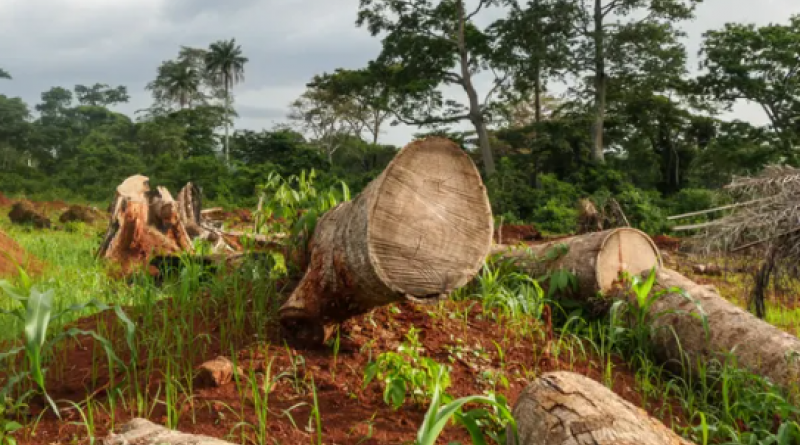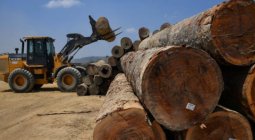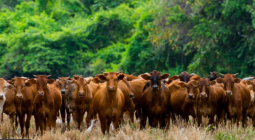EU aims to curb deforestation with beef and coffee import ban

Raft of commodities would be prohibited under draft law in fight to protect world’s endangered forests.
Beef, palm oil, cocoa and other products linked to deforestation will be banned from entering the European Union under landmark legal proposals that attempt to help prevent the felling of the world’s great forests.
Two weeks after world leaders signed a plan at Cop26 to reverse deforestation at Cop26, the EU executive on Wednesday outlined a draft law requiring companies to prove that agricultural commodities destined for the bloc’s 450 million consumers were not linked to deforestation.
Beef, wood, palm oil, soy, coffee and cocoa are covered by the proposals but not rubber, an exclusion that has been criticised by environmentalists.
Nevertheless green groups have welcomed the plans, as for the first time the EU will attempt to regulate products linked to all – and not just illegal – deforestation. Environmentalists say this is an important step, as some large forested countries, such as Brazil, have whittled away legal protections.
“What we propose is a pioneering initiative,” Virginijus Sinkevičius, the EU environment commissioner, said. “EU action alone will not solve the problem. We also need major markets like the US and China to clean up their supply chain and we need producers to step up protection of the forests, but we stand ready to help.”
Nico Muzi, the Europe director of the Mighty Earth campaign group, said the law was “a major leap forward” in the fight to protect the world’s endangered forests. He said: “The EU is sending a clear message to major supermarkets and retailers: one of the largest economies in the world simply won’t accept agricultural products linked to deforestation.”
However, the EU’s proposals “pointlessly left out” fragile ecosystems, he said, such as Brazil’s Cerrado savannah and peatlands in south-east Asia, both rich stores of carbon, plant and animal life. The group has also criticised the exclusion of rubber, which it said caused 5m hectares of deforestation in recent years.
Sinkevičius said more commodities could be included if there was evidence of a problem, as the draft law allowed the EU to “quickly react … to changing deforestation patterns”.
He also defended the commission’s number-crunching, after scientists whose work was cited by EU officials criticised Brussels’ use of their data. “I think we didn’t get it wrong,” said Sinkevičius, who added the regulation was targeted at commodities where European consumption contributes the most to deforestation.
The Lithuanian former economy minister also highlighted the inclusion of some derived products in the draft law: leather, chocolate and furniture. Companies will face a due diligence requirement to ensure they are not selling products that have caused deforestation or forest degradation, which will mean monitoring land in countries of origin via satellites and geolocation tracking.
Between 1990 and 2008, EU consumption led to 10% of global deforestation, according to a commission estimate. The proposals are likely to be amended in negotiations between member states and the European parliament before they become law.
Separately, the commission announced its intention to revive an attempt to protect European soils through legislation. About 70% of European soils are deemed not healthy as a result of farming, pollution and urban sprawl, while 1bn tonnes are washed away each year through erosion, an amount equivalent to 1-metre deep of soil across Berlin.
The commission, which regulates air and water quality, said it would publish the legal proposals in 2023 with the aim of achieving good soil health across the EU by 2050.
In the meantime, EU governments are being urged to set targets to minimise development on agricultural land and the natural environment, with more focus on redeveloping urban areas where the earth is already sealed under pavements and tarmac.
More than a decade ago, big EU member states, including the UK and Germany, thwarted plans for an EU soil protection law. Sinkevičius said Brexit “doesn’t make much difference”, as previously reluctant member states seemed more supportive.
17 November 2021
The Guardian




